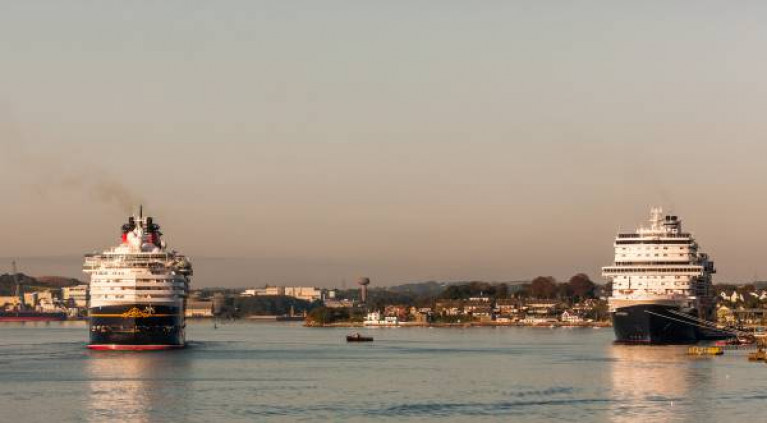Cork Harbour could fall victim to a drop in cruise travel as a result of the novel coronavirus outbreak.
As EchoLive.ie reports, the Centres for Disease Control and Prevention (CDC) has issued an update to anyone with imminent cruises booked, advising all travellers, particularly those with underlying health issues, to defer all cruise ship travel worldwide.
The advice follows the news that cruise ship, the Grand Princess, was held 30 miles off the coast of San Francisco for several days after 21 people tested positive for Covid-19. Passengers on the Grand Princess are set to be evacuated in Oakland, California (plus RTE News) over the next two to three days and will be quarried for a 14 day period.
The CDC has concluded that cruise ships pose a significant threat in spreading the virus. “Recent reports of Covid-19 on cruise ships highlight the risk of infection to cruise ship passengers and crew. Like many other viruses, Covid-19 appears to spread more easily between people in close quarters aboard ships,” the organisation said.
More on the story here which added there could be an impact on the Port of Cork which welcomed a record 100 cruise ships into Cork Harbour last year.
Afloat adds the majority of cruise calls take place at Cobh where a French Navy frigate recently docked alongside the cruise-orientated pontoon. In addition cruise ship's dock at Ringaskiddy (Deepwater Berth) whereas smaller ships navigate upriver to Cork city centre to berth at the South Quays..


























































